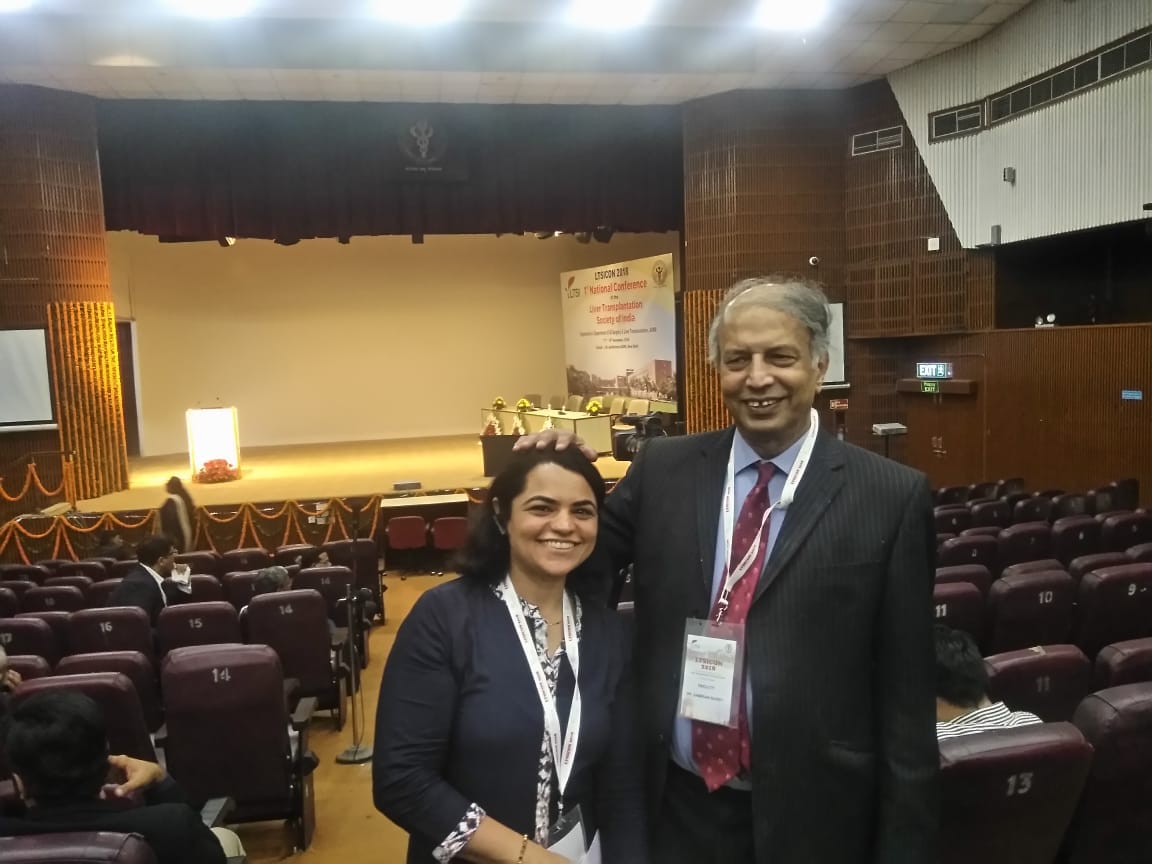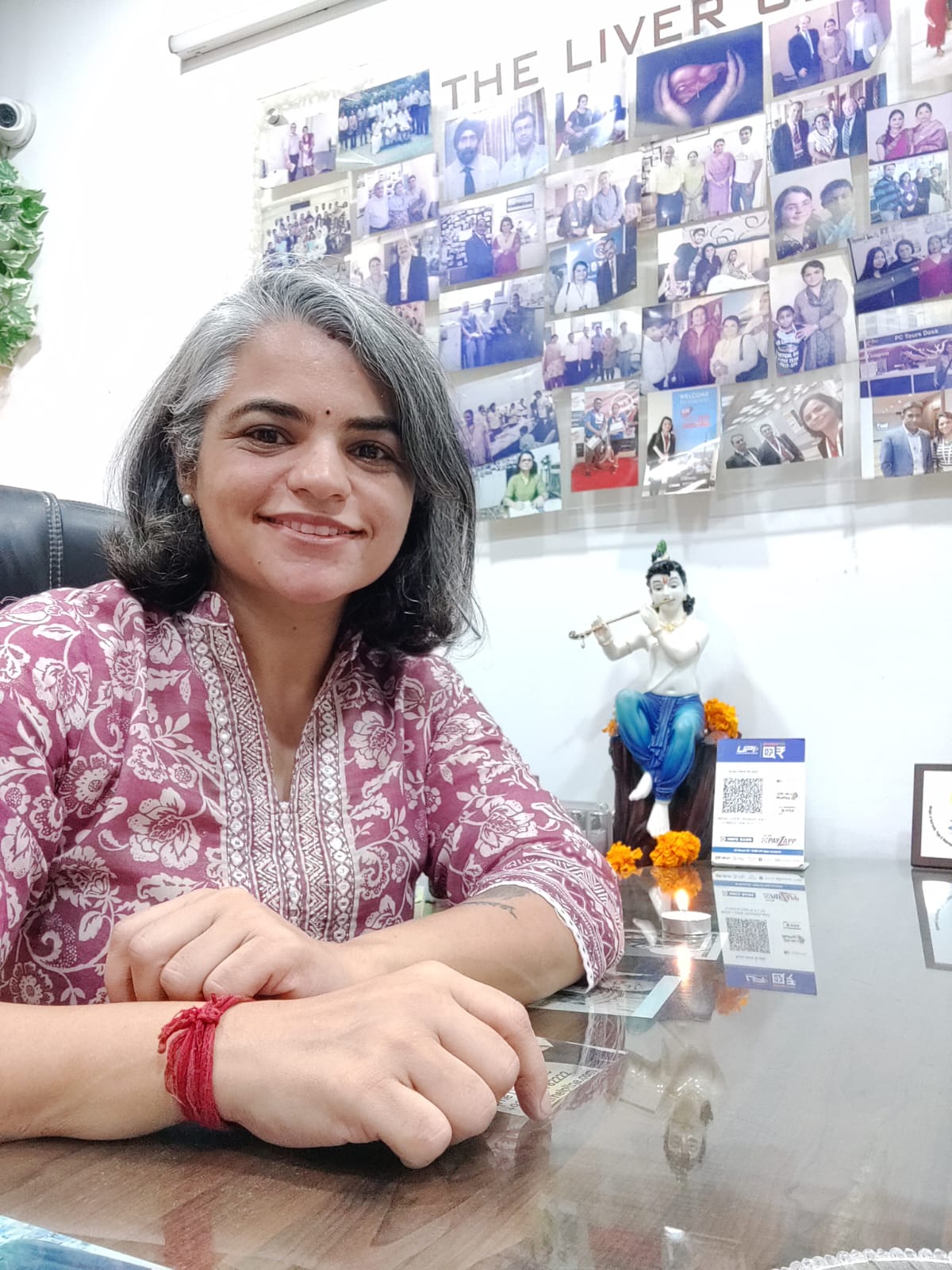Living Donor for Liver Transplant
Law in India permits organ donation from a close relative only and rarely on altruistic ground from non related individual. Donors a re interviewed and explained the need of transplant. They are evaluated for willingness, medical, surgical, psychological and socio-economic aspects. Healthy donors with blood group compatibility and weight and size matching are the most important considerations prior to screening of donors. Donor has to understand noble concept of donation part of own body to a beloved one and gift of life to the patient, who is at verge of dying if not transplanted. Donor has to fully agree voluntarily for organ donation and understand risks of surgery. As said earlier; liver is gifted naturally to regenerate if a part of it is removed.
Donor has to undergo may blood tests to evaluate overall health condition, CT scan to know volume and anatomy of liver, MRCP to know biliary anatomy and surgery. Persons of 18-55 years of age group are acceptable as donors. Volume of liver is evaluated so that it is more than sufficient volume is left for the donor and enough for recipient to sustain life.
Making an informed donation
Ask me about any questions you have. You should understand all aspects of the donation process, including the risks and benefits. It is important to be completely honest with the transplant team about your feelings, concerns and fears about being a donor. Your consent to become a donor is completely voluntary. You should never be under pressure to become a donor. You have the right to delay or stop the donation process at any time of the evaluation process. The reasons behind your decision will be kept confidential by the transplant team. Talk in detail with your loved ones, such as family members and close friends. Talk with other people who have been living donors and learn more about the experience of other living donors before making a final decision. Fully consider how donation may impact your physical and emotional health, as well as your family life, financial situation, and current and future health and life insurance status.
Medical and psychological risks
Since living donors require general anesthesia and undergo major surgery, they are associated risks involved. Surgical complications can include pain, infection, blood loss (requiring transfusions), blood clots and allergic reactions to anesthesia, pneumonia and injury to surrounding tissue or other organs, and even death. Please not that there has be no national systematic long-term data collection on risks associated with living organ donation. Based upon limited information that is currently available, overall risks are considered to be low. Risks can differ among donors. Some possible risks of liver donation include wound infections; hernia; abdominal bleeding; bile leakage; narrowing of the bile duct; intestinal problems including blockages and tears; organ impairment or failure that leads to the need of transplantation; and even death. Negative psychological symptoms are possible during the healing process and even years after the donation. Your donated organ may not function in the recipient after it is transplanted. You and/or the transplant recipient may have medial problems from the surgery. Scarring or other aspects of the donation process could possibly contribute to problems with body image. You may have feelings of regret, resentment or anger. You have symptoms of anxiety or depression. Treatment for these conditions can be lengthy, costly and could possibly include the use of medications with risks and side effects. You have to understand personal, familial, social, financial and professional problems that may follow your operation. You should receive adequate support from family members.
Positive aspects of living donation
The gift of an organ can save the life of a transplant candidate. It’s heartening and a great relief to see your beloved one alive when he/she is in misery and nearing to death. Some donors have reported positive emotional experiences, including feeling good about giving life to dying person. Transplants can greatly improve recipients’ health and quality of life, allowing them to return to normal activities. They can spend more time with family and friends, do more physical activities, and pursue interests and hobbies. Transplant candidates generally have better results when they receive organs from living donors as compared to organs from deceased donors. In addition, better genetic matches between living donor and candidates may decrease risk of organ rejection. A living donor makes it possible to schedule the transplant at a time that is convenient both for the donor and the transplant candidate.
Recovery from Surgery
Please talk to transplant team members to understand what to expect, although the surgery and recovery process can differ among living donors. Consider talking with other donors and contacting the organizations. As a liver donor, you may stay in the hospital up to 10 days or longer in some cases. The liver typically regenerates in two months. Most liver donor returns to works and normal activities in three months, although some may need more time. Attend follow-up visits to clinic regularly as advised and do blood or other investigations to make sure that you are recovering approximately. Think about how the donation process may affect your daily activities. How much time off will you need for work? How will this affect your care giving responsibilities such as childcare or caring for an elderly relative? How it is going to affect your personal life and body image.



